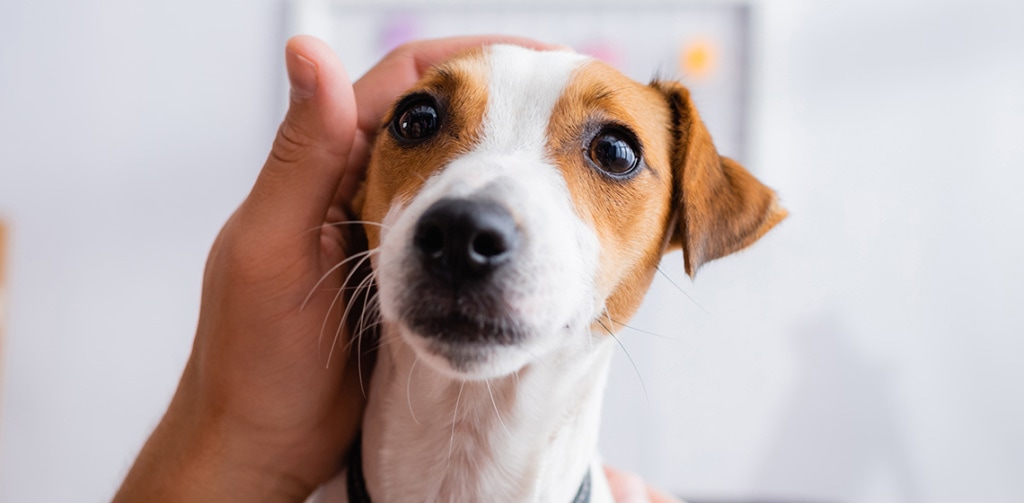If you click on links we provide, we may receive compensation.
If you are a dog owner, especially of an older dog, you may notice them pacing at some point. As a pet parent, seeing your dog restless and unsettled or being unable to distract them or get their attention can be distressing. But what can cause dogs to pace? Read on to find out about the potential causes and what you can do to help.
Severity:
Variable, but often moderate to severe
Table of Contents
Key points
- Pacing can be caused by stress or pain but also by neurological conditions affecting the brain
- Your dog will need to be examined by a veterinarian and may need further tests
- Your dog may need a referral to a behaviorist or a neurologist for investigation depending on the cause
- Pacing can be related to a phobia or anxiety, so may happen at certain times of year e.g. firework season
Common in:
Older dogs, although any age, breed, and gender may start pacing due to pain, anxiety, or distress
Symptoms and types:
Pacing in dogs is reasonably common and can be seen on its own or in combination with other symptoms.
- If the pacing is related to stress or anxiety you may also notice panting and vocalizing as well. However, if related to stress or distress your dog should not seem drunk, uncoordinated, or wobbly and they may be distractable from their pacing.
- On the other hand, if your dog is pacing due to a neurological condition, they may not be walking well and may seem drunk or wobbly on one or more legs. They may be circling continuously in one direction and seem reluctant if you try to turn them the other way. They might appear blind, or appear not to notice obstacles like corners of the room or furniture. Neurological conditions can also cause vomiting, nystagmus (repetitive movement of the eyes), seizures, or a tilt of the head to one side.
- If your dog’s pacing is related to pain, you may be aware of an incident of trauma, they may be limping on one leg, or you may be able to see a wound or injury. Some causes of pain are not visible to us as owners, but your painful pooch might seem restless, unable to get comfortable, and maybe howling or vocalizing, or quieter than normal.
Giving any human medication is very dangerous and should be avoided since dogs do not react to all drugs in the same way that humans do.
Understanding the diagnostics
If your dog is pacing, our veterinarians will start by taking a history and giving your dog a full examination from head to tail, to try to determine the most likely cause.
- If they believe pain to be the most likely cause, they may recommend a blood test, x-ray, or ultrasound scan, or they may want to assess your dog’s response to pain relief.
- If the veterinarian suspects stress or anxiety as a cause, they may do screening tests like blood work to rule out an underlying cause before discussing trialing anti-anxiety medication or referral to a behaviorist.
- There are many neurological causes of pacing, and if your veterinarian feels a brain-related cause is most likely they may perform a neurological examination to check the function of the nerves, brain, and spinal cord. Following a neurological examination, they may recommend a blood test, x-ray, or even advanced imaging like a CT or MRI scan.
Learning about the causes
1. Anxiety or stress
Pacing can be caused by anxiety and stress, especially phobias.
You might notice that your dog is particularly clingy and dislikes being left alone. If your dog has separation anxiety your neighbors may complain that they are barking when you’re not home and if you have a webcam you might see them panting and pacing around the house. This would be an example of stress-related pacing.
Another example would be if your dog has a noise phobia, like fireworks. If your dog has a phobia of fireworks and they hear them close by, they may begin panting and pacing relentlessly. Although not a concern related to your dog’s physical health, it is certainly not a problem to be ignored.
Luckily, our team will be able to make recommendations to help with anxiety and phobias and can refer to a behaviorist if needed.
2. Pain
Pain can be a major cause of dog pacing. Commonly they also pant, and sometimes whine or vocalize. If they are pacing due to pain, they may be unable to settle or find a comfortable resting place. One of our veterinarians will be able to assess them to find the source of pain and give medication to make them more comfortable.
3. Neurological causes
Neurological or brain-related causes of pacing include a stroke, a brain tumor, blindness, vestibular syndrome, or just an age-related reduction in brain function. In these cases, the pacing might be accompanied by a loss of sight or hearing, vomiting, walking sideways, or walking in circles. A neurological examination by one of our vets team might suggest a lesion within the brain and this could be further investigated by a neurological specialist if needed.
If your dog also has any other symptoms like vomiting, a head tilt, or circling, you should speak to a veterinarian right away.
Best treatment options
- The treatment options available for anxiety and pain are fairly straightforward. Your stressed dog may benefit from a trial on anti-anxiety medications like valerian compound, dog appeasing pheromone, or even something stronger like mild doses of sedatives.
- Pain relief options are varied, from paracetamol to strong opioids depending on the severity of the pain, and of course, the cause of the pain would need to be investigated and rectified.
- The treatment options for neurological conditions are less straightforward, some medications may improve brain function, which may have a place in the treatment of pacing caused by senile change. However, brain tumors, strokes, and other brain conditions would need assessment by a specialist. Whilst these conditions often can’t be cured, they can sometimes be managed for a while, ensuring your dog has a reasonable quality of life until the condition progresses.
For mild anxiety cases, natural supplements like BARK&SPARK Advanced Calming Hemp Treats may offer a gentle and effective alternative to medication.

Home remedies and their effectiveness
- Many people will try to stop their dogs from pacing by restraining them, moving them to another location, or confining them to a smaller area. Sadly, this is usually ineffective no matter the underlying cause of the pacing. In fact, it is only likely to cause your pet more stress and may cause them to panic.
- You may feel tempted to try to give your pet calming or anxiety medication intended for humans. Giving any human medication or supplement is very dangerous and should be avoided since dogs do not react to all drugs in the same way that humans do.
The best and most important thing that you can do if your dog is pacing is to ensure they are safe by removing any obstacles and blocking any potential falls like steps or staircases. Calmly reassuring them with your voice can be helpful.
When to see a vet
If your dog is suddenly pacing continuously and there is no obvious distressing cause it may be a good idea to speak to one of our veterinarians, especially if you are not able to distract them or get their attention. Equally, if your dog has any other symptoms like vomiting, a head tilt, circling, or wobbliness, you should speak to a veterinarian right away.
On the other hand, if you know that your dog has a particular phobia or anxiety, it may be worth speaking to one of our team about options to try to manage their stress.
FAQ
Dogs can pace because they are stressed, painful, or anxious. However, they can also pace because due to other conditions, often affecting the brain, so speak to your veterinarian if you are concerned.
Dogs may walk around aimlessly because they are less aware of their surroundings, unwell, painful, or feel stressed. However, boredom can also cause them to walk around aimlessly, so check whether this could be the cause before contacting your veterinarian.
Old dogs can experience senile change just like in people. This is one of the causes of pacing in older dogs, however, other conditions can affect the brain and may also cause these symptoms, so it is worth arranging a check-up with a veterinarian to find out the cause and possible treatments.

Dr. Hannah Godfrey MRCVS graduated from the Royal Veterinary College in 2011. Although she initially worked in mixed practice treating all species, she found a love for small animal work and has worked exclusively with dogs and cats since 2014. She lives in Wales with her partner, son, and two cats (named Poppy and Ashton Kutcher), and writes comedy fiction in her spare time.








